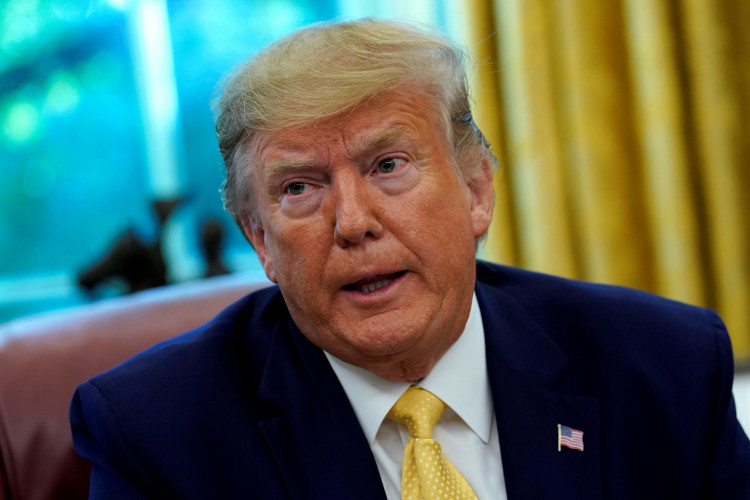Former Fed Chair Janet Yellen raised concerns about the risks that the United States' economy is faced with, noting that U.S. tariffs on billions of Chinese imports are not helping ease fears about a potential American recession.
According to CNBC, Yellen said on Thursday at the World Business Forum that Washington's move of slapping tariffs on Chinese goods is presenting a negative effect not just on the corporate level but also among consumers.
The former U.S. Fed leader further explained that higher prices of products from China are sending bad vibes to businessmen. The general atmosphere on uncertainty over a potential China-U.S. trade deal is also impacting consumer sentiment.
Yellen, who served at the central bank for four years from 2014 to 2018, predicted that a U.S. economic recession may not come next year. However, she warned that "the odds" of a potential recession "are higher than normal."
For Yellen, there is "good reason to worry" that the American economy has massive loopholes that need to be patched up. However, she argued that the Fed is already in a lot of pressure and does not have a lot of space for helping boost the economy through easing up interest rates.
The economic expert further pointed out that people in the U.S. workforce are expressing concerns about the economy being unable to propel their lives forward. She said the inequality that has led Americans to develop social discontent is "extremely disruptive."
Before Yellen's pessimistic and concerned comments about the U.S. economy this week, Goldman Sachs already predicted earlier this month that an elusive China-U.S. trade deal will most likely remain out of view within the next few months.
According to CNN, Goldman Sachs' chief U.S. political economist, Alex Philips, said the bank believes that the White House will most likely not move to lower tariffs on Chinese imports anytime soon as discussions with Beijing have yet to reach better progress.
The financial institution's predictions came shortly after Washington said it was considering the possibility of working around the existing tariffs under the premise that "phase one" of its trade deal with China is agreed on officially.
To date, the two economic giants have yet to announce new progress on the potential trade agreement that could eradicate or at least reduce the amount of tariffs both sides have implemented on each others' imports.
Some economists have also forecasted that while "phase one" is still highly possible, the likelihood of it being inked this year is not enough to warrant the easing of concerns about both the Chinese and U.S. economies.





